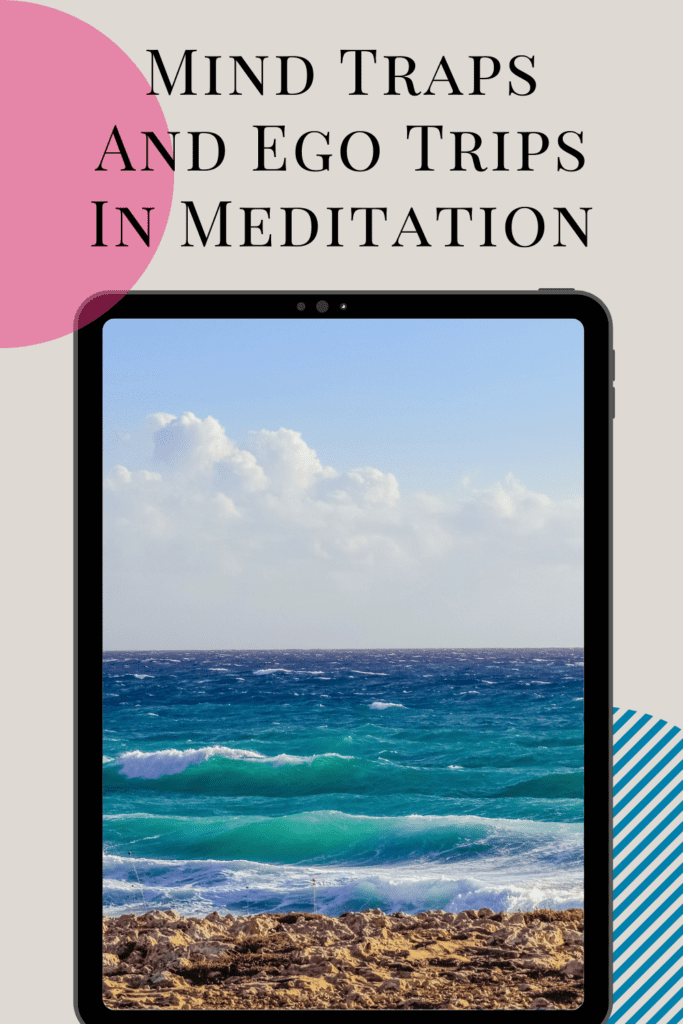 The mind, or the ego, is powerful. It does not want to be trained or reigned in. It is our ego that resists meditating. It is a common experience to start meditating for a period of time and then decide that it is not that important and to quit. You will likely notice during a mediation session that thoughts of judgment or resistance about your meditation session or your ability to meditate arise.
The mind, or the ego, is powerful. It does not want to be trained or reigned in. It is our ego that resists meditating. It is a common experience to start meditating for a period of time and then decide that it is not that important and to quit. You will likely notice during a mediation session that thoughts of judgment or resistance about your meditation session or your ability to meditate arise.
They make look like:
- “I suck at this’
- “This is boring’
- “I don’t feel peaceful’
- “I wasn’t focused enough’
- “Meditation won’t work for me”
- ”nothing ever works’
When you experience these thoughts simply watch them, be aware and allow them to drift away. This is your ego playing tricks. It doesn’t want to be reigned in; it wants to be in charge.
Do not feel like you need to battle your ego or “˜show it who’s boss’. This means you have moved away from detachment and compassion and back into ego. This is a trick of the mind that does not want the conscious ‘you’ to be in charge, but makes you feel like you are in charge. Think of your mind as a child that has been allowed to run wild and now it is your job to gently, but firmly reign it in. Essentially, anytime you notice yourself thinking negatively, out of fear or resisting what the present moment is–that is your ego. Teach your ego to gently surrender to what is whether that is positive or negative.
Avoid getting stuck in the common mind traps or ego trips such as:
- wanting what’s different from what’s happening now
- the feeling that this will never work and it’s no use
- you have other things to do that are more important
- fear or anger
- sounds or other distractions such as to do lists
- general aversion
- being excited or agitated
- the opposite feeling of sleepiness
- feeling an itch or fidgety (if you give into the mind’s desire to distract you and to continue fidgeting and sitting ‘just right’ it will never end. Try to work through any physical sensations)
Every Meditation is a Good One
Just remember that there is no such thing as a bad meditation. Whatever your mind brings up or you are experiencing needs to occur. Every session is different. Some will be peaceful and tranquil, others will feel busy. The more you sit and try to experience a sense of peace the less likely that it will happen. The more you detach, let go of expectations of what you want from the session and accept and allow whatever is happening, the more likely you will eventually feel peace. Meditation is not a competition or a sport of the mind. Meditation is about being with yourself, experiencing yourself and observing.
Ending a Session
When the session is over don’t just jump out of your meditative session and continue on with your daily tasks. Spend at least two minutes with your eyes closed and then gently bring yourself out of your meditative state. This has been shown to be very effective in having a more lasting effect.
Check-In Throughout the Day
Meditation does not stop after the session is over. Check in with yourself constantly throughout the day through mindfulness or mini-sessions, even if they are one or two minutes in the washroom at work. As you continue to mediate you will increasingly experience lasting effects throughout the day.
As you become more skilled at this art you can expand your awareness to be able to watch your thoughts come and go. You will become mindful of the sensations that arise in your body and the emotions that come up from moment to moment and as a result you will be better able to regulate them as you learn to respond instead of react.
The Breakdown
1. Get seated
2. Cues – Light a candle, look at an inspiring picture, read a prayer, poem etc.
3. Set your timer
4. Close your eyes. Soften your body and breathe deeply for a few moments, then breathe normally.
5. Meditate (use your anchor and observe your thoughts)


